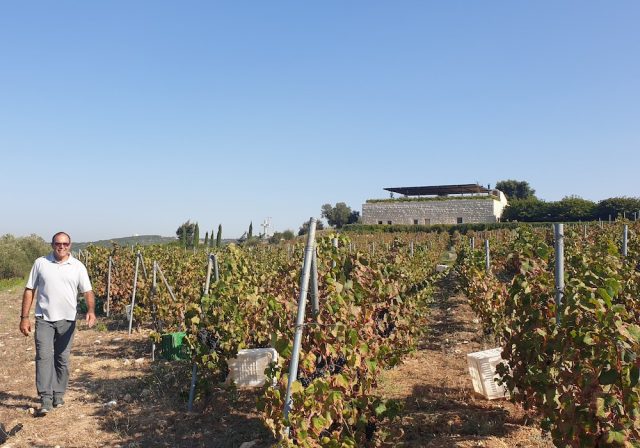This website uses cookies so that we can provide you with the best user experience possible. Cookie information is stored in your browser and performs functions such as recognising you when you return to our website and helping our team to understand which sections of the website you find most interesting and useful.
Lebanon producer harvests grapes despite bombings
Lebanon producer IXSIR’s 2024 vintage will be a “different style” compared to 2023 and “more expressive” as well as “showing great promise”, according to winemaker Gabriel Rivero.

Although it said that “no vineyards have yet been damaged” during the current conflict in the Middle East, bombing had intensified near several sites, and the earlier harvest was “critical in securing grapes before escalating regional tensions”.
The “stress of potential conflict was present throughout the harvest”, but previous vineyard data helped minimise on-site visits and reduce risks.
While last year’s vintage was “subtle and elegant”, this year’s will have “a greater fattiness and tension”. Ixsir said the harvest this year has “proved challenging at times”, with the grapes being picked three weeks earlier than usual, which “complicated the process”.
Challenges

The producer said a shorter vegetative cycle “raised concerns” over a potentially monolithic and overly-structured vintage, so a soft extraction was employed to combat these challenges
IXSIR’s vineyards span across Lebanon – Beqaa, the South, and the North – but each were facing different challenges, due to the “current situation in the country”, the producer said.
Talal Madi, CEO of IXSIR, said: “Despite the ongoing war and Lebanon’s socio-economic challenges, including daily bombings in areas such as the Bekaa Valley and south Lebanon, a deepening crisis, the country’s resilience shines through.
“In 2024, despite these immense pressures, IXSIR managed to complete another successful harvest.”
Hope

Gabriel Rivero added that the harvest was delivered “despite an incredibly challenging year”, and that the harvest season is “a time of anticipation and hope, with each grape symbolic of resilience and the vines a symbol of ever-growing strength.”
He said: “Whites are very aromatic, highlighting a bright, promising future for the vintage. And some reds are still undergoing malolactic fermentation, but already showing elegance and finesse, indicating that this vintage will produce some serious, fine wines.”
Previous issues
The news follows the drinks business previously reporting in 2022 how the winery had overcome issues with fuel, and access to money, as well as glass and bottlecaps during the harvest and production.
IXSIR released its first wines in 2008, and now produces around 600,000 bottles per year, incorporating varieties such as Muscat, Chardonnay, Sauvignon Blanc, Viognier, Assyrtiko and Vermentino, alongside Lebanon’s two native varieties -Obeidy and Merwah. The producer also grows Censault, Carignan and Grenache.
“All our wines are blends,” Debanne told db at the time. “We are a blended nation. We have 17 religions, three different climates – how could they not be? Our whole culture is diversity.”
The same year, IXSIR secured a UK distributor for its Grande Réserve Rosé 2021 for the first time, following an international plea to the wine community to assist the country’s producers.
Solar power
It also comes as another of Lebanon’s Domaine des Tourelles has announced that it has fully converted its Beqaa Valley winery to solar power, a move necessitated not just by environmental reasons.
“We are no longer dependent on the flow of fuel into the country – we now depend on the sun which is abundant throughout the year in the Beqaa Valley,” Issa shared with db. The Beqaa Valley receives around 300 days of sunshine per year.
Related news
Why one of Lebanon's biggest wineries has switched to solar power

